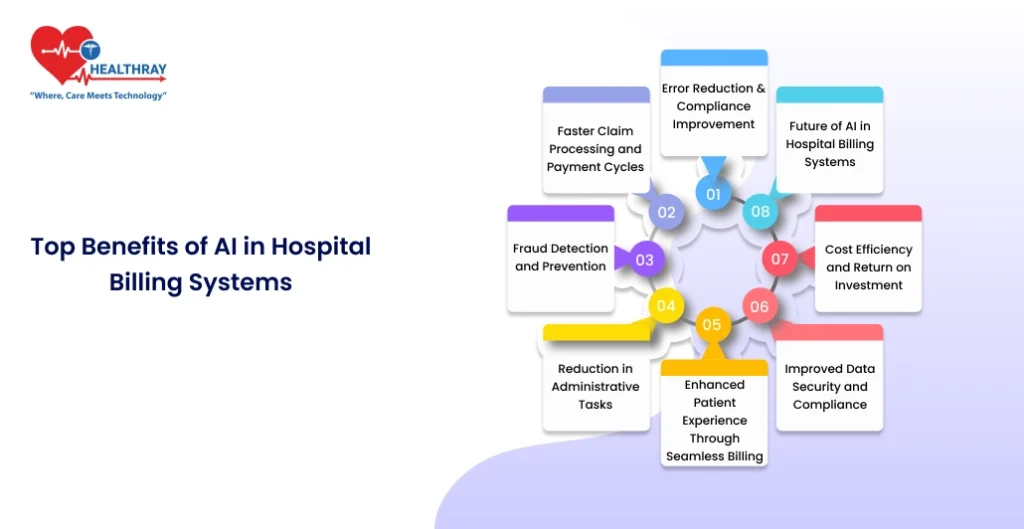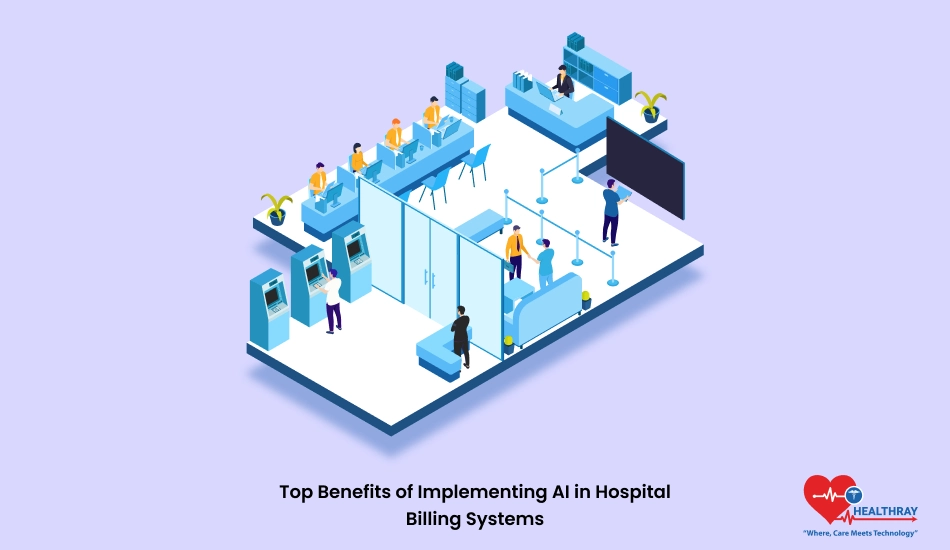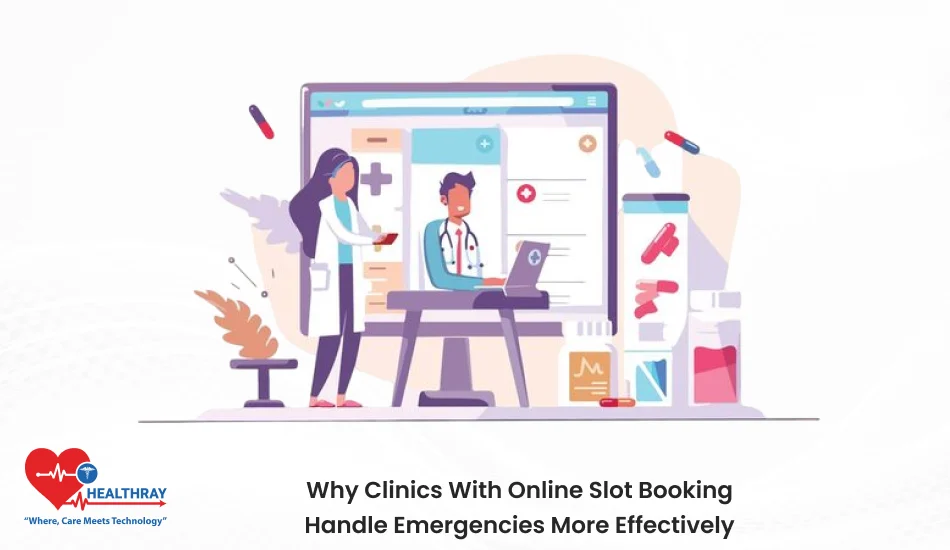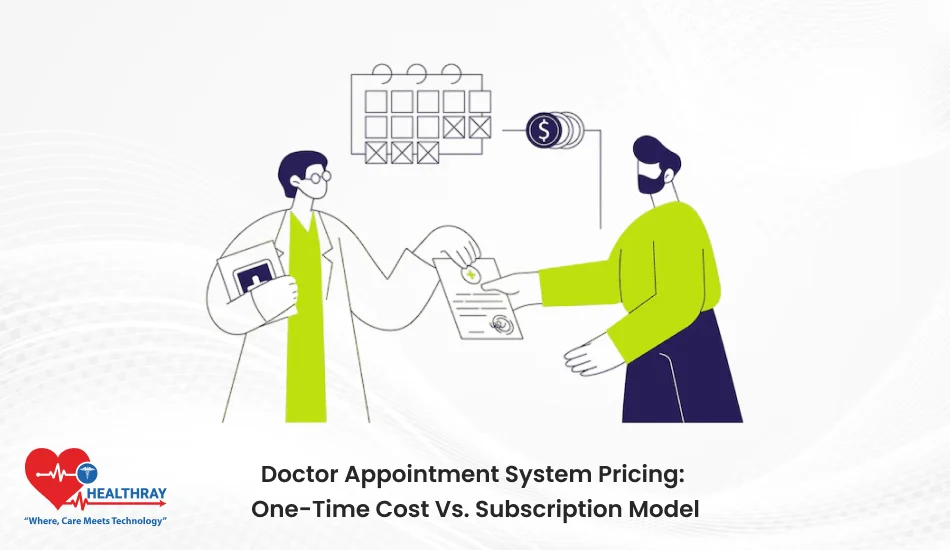Managing hospital billing is no easy task. Between navigating ever-changing regulations, minimizing errors, and ensuring payments are timely, it’s a balancing act for administrators and billing teams. That’s where artificial intelligence steps in, transforming the way billing systems work.
AI isn’t just a trendy buzzword; it’s a practical tool that’s streamlining billing processes for hospitals of all sizes. From reducing errors to speeding up claim approvals, AI can turn a historically frustrating process into a seamless operation.
In this post, we’ll break down the key benefits of implementing AI in hospital billing systems. You’ll see how it improves accuracy, saves time, and even protects sensitive patient data. By the end, you’ll know why AI is more than just an upgrade—it’s a necessity.
Top Benefits of AI in Hospital Billing Systems

Error Reduction and Compliance Improvement
Errors in hospital billing are costly and time-consuming. AI systems shine in reducing these errors by analyzing patterns in data and automatically identifying discrepancies. For example, they can detect incorrect codes or missing documentation that might lead to rejected claims.
Beyond error reduction, AI ensures compliance with complex and ever-changing billing regulations. Traditional billing systems often struggle to keep up with updates in medical coding or insurance requirements. AI can adapt quickly, ensuring your processes align with the latest standards. This reduces the risk of fines, penalties, or lost revenue due to non-compliance.
By leveraging AI for error checking and compliance, hospital administrators and billing teams save countless hours and reduce the frustration associated with manual reviews. This allows staff to focus on more strategic tasks rather than firefighting billing errors.
Faster Claim Processing and Payment Cycles
One of the biggest bottlenecks in hospital billing is claim processing. Delays often stem from manual checks, data entry errors, and the back-and-forth with insurance providers. AI tackles this by automating tedious steps in the process.
AI-powered systems can review claims instantly, ensuring all required information is complete before submission. This minimizes the risk of rejections. Additionally, AI tools can predict potential issues in claims, like mismatched codes or missing authorization, and flag them for resolution before submission.
Hospitals also benefit from faster payment cycles. AI enables quicker claim approval by automating the verification process with insurers. The system communicates directly with payer databases, speeding up eligibility checks and authorizations. This ensures payments are processed promptly, improving cash flow for hospitals.
For billing managers and IT professionals, the time saved with automated claim processing means fewer delays, happier patients, and more streamlined operations. Ultimately, this technology turns a historically slow process into a smooth, fast, and efficient one.
Fraud Detection and Prevention
Fraudulent billing is a significant challenge for hospitals, costing millions annually in lost revenue. Identifying and preventing fraud manually is time-intensive and prone to human error. AI changes the game by introducing advanced fraud detection capabilities.
AI systems analyze large volumes of billing data to identify unusual patterns or anomalies that could indicate fraudulent activity. For example, if a claim includes duplicate charges or billing for unperformed procedures, the AI flags it for review. This proactive approach helps catch errors and fraud before they escalate into costly problems.
These systems also continuously learn from past cases. Over time, AI becomes even more effective at recognizing subtle signs of fraud, making it a reliable partner in safeguarding hospital finances.
For hospital administrators, this means reduced financial risk and increased trust with insurance providers and patients. Fraud prevention powered by AI ensures billing processes remain transparent and credible, protecting the hospital’s reputation and bottom line.
Reduction in Administrative Tasks
Administrative tasks can overwhelm billing departments, leaving little time for strategic improvements. From manual data entry to claim follow-ups, these repetitive jobs are not only time-consuming but also prone to mistakes. AI significantly reduces the administrative load by automating routine processes.
AI tools handle tasks like entering patient data, verifying insurance eligibility, and even cross-checking claims for accuracy. This automation ensures that the billing workflow moves faster without sacrificing precision. For example, instead of staff manually reviewing every claim for completeness, AI systems perform these checks instantly.
Another benefit is in managing denied claims. AI systems can analyze reasons for denials, suggest corrective actions, and even reprocess claims, saving the billing team hours of effort.
By streamlining these administrative duties, hospitals not only save time but also reduce operational costs. This allows billing managers to reallocate their team’s focus to higher-value tasks, such as optimizing the revenue cycle or improving patient experiences.
Enhanced Patient Experience Through Seamless Billing
Billing issues often lead to patient frustration, whether it’s unclear invoices, unexpected charges, or prolonged payment processes. AI can transform the patient billing experience by ensuring accuracy, transparency, and faster resolutions.
AI-powered systems help generate clear and accurate invoices by eliminating errors and ensuring all services are billed correctly. Patients are less likely to encounter surprises in their bills, which builds trust in the hospital’s financial processes.
Real-time eligibility verification is another AI-driven benefit. Before treatment begins, patients can be informed about their coverage and out-of-pocket costs. This transparency helps avoid disputes and ensures patients feel more in control of their healthcare expenses.
Hospitals can also offer AI-driven billing support tools, like chatbots, to answer patient queries or assist with payment plans. This reduces the burden on customer service teams while providing patients with timely and helpful responses.
By making billing smoother and more transparent, hospitals create a positive impression that can improve patient satisfaction and loyalty. This directly aligns with doctors’ and administrators’ goals of delivering not just quality care, but also a seamless overall experience.
Improved Data Security and Compliance
Handling sensitive patient data is a critical responsibility for hospitals. With cyber threats on the rise, ensuring data security is more important than ever. AI offers robust solutions to safeguard Hospital Billing Software and maintain compliance with strict healthcare regulations.
AI-powered systems can detect unusual activity or potential security breaches in real time. For example, if an unauthorized user attempts to access billing information, the AI system can flag it immediately and take preventative action. These advanced monitoring capabilities reduce the risk of data breaches, protecting sensitive patient and financial information.
In terms of compliance, AI helps hospitals adhere to data protection laws like HIPAA. By automating tasks such as access logging and data encryption, AI ensures that all processes meet regulatory requirements. Additionally, AI can audit billing activities to identify areas of non-compliance, allowing hospitals to address issues proactively.
For IT professionals and administrators, AI simplifies the complex task of securing patient data while staying compliant. This peace of mind allows them to focus on improving operational efficiency and patient care.
Cost Efficiency and Return on Investment (ROI)
One of the biggest questions hospital administrators ask when considering AI is: “Will it be worth the investment?” The answer lies in the significant cost savings AI can bring to billing systems.
AI reduces costs by automating labor-intensive tasks, such as data entry and claim management. This allows hospitals to redirect staff efforts to more strategic roles, potentially saving thousands of dollars in payroll expenses. Additionally, by minimizing errors and reducing claim denials, AI prevents revenue leakage that often results from manual mistakes.
Another cost-saving factor is faster reimbursement cycles. AI ensures that claims are accurate and compliant, leading to quicker approval by insurers. The improved cash flow means hospitals can operate more efficiently without worrying about delayed payments.
Over time, the return on investment becomes evident. Many hospitals see a reduction in administrative costs, fewer compliance-related penalties, and improved patient satisfaction, all of which contribute to long-term financial stability.
For billing managers and administrators, adopting AI isn’t just an upgrade—it’s a strategic move that delivers tangible financial benefits while enhancing operational efficiency.
Future of AI in Hospital Billing Systems
AI in hospital billing is just the beginning. As technology evolves, its role in healthcare billing will expand, offering even more possibilities to improve efficiency, accuracy, and patient satisfaction.
Predictive analytics is one area where AI is already making strides. These systems can forecast claim outcomes based on historical data, helping hospitals anticipate and mitigate potential issues before they arise. This reduces denials and speeds up the revenue cycle even further.
AI-driven tools are also expected to integrate more seamlessly with electronic health records (EHRs). This means hospital medical billing software will automatically pull accurate data directly from patient records, ensuring error-free invoicing and reducing the manual workload even more.
Another exciting possibility is the adoption of conversational AI for billing support. Patients and staff alike could use virtual assistants to resolve queries, set up payment plans, or track claim statuses in real time, improving satisfaction for all stakeholders.
As AI becomes more advanced, hospitals will be able to customize solutions to meet their unique needs. This adaptability ensures that AI remains a valuable, future-proof investment in healthcare billing systems.
Conclusion
Hospital billing has long been a challenging aspect of healthcare management, with its complexity, high error rates, and time-consuming processes. AI is changing this landscape, making billing more efficient, accurate, and transparent.
From reducing errors to accelerating claim approvals, AI empowers hospitals to streamline their operations, enhance compliance, and improve patient satisfaction. It also safeguards sensitive data, ensuring billing processes are secure and trustworthy. For administrators, billing managers, IT professionals, and doctors, this technology offers a solution that doesn’t just save time but also optimizes revenue and improves overall care delivery.
Investing in AI for hospital billing isn’t just about solving immediate problems. It’s about future-proofing operations, keeping pace with advancements, and staying ahead in a competitive healthcare industry. The question isn’t whether hospitals can afford to implement AI—it’s whether they can afford not to.





